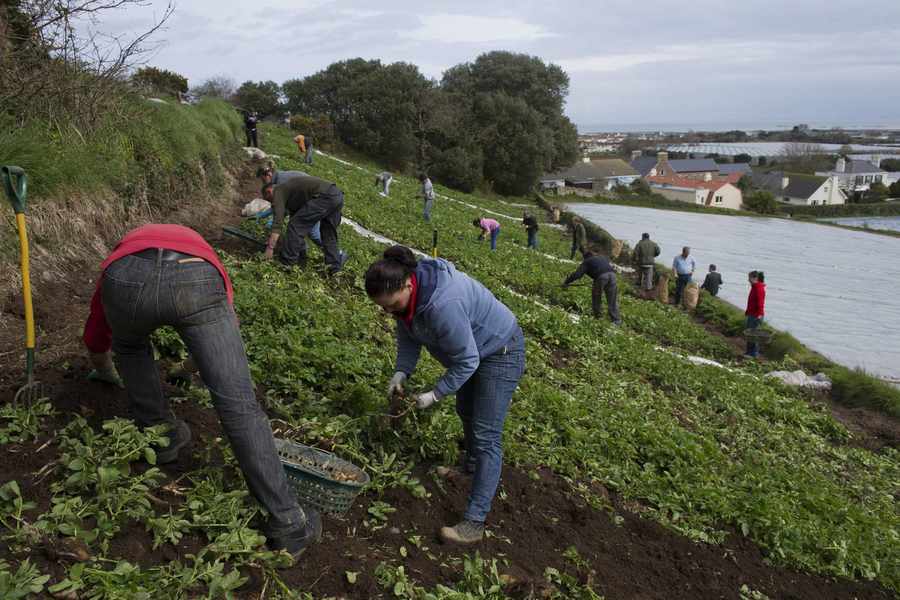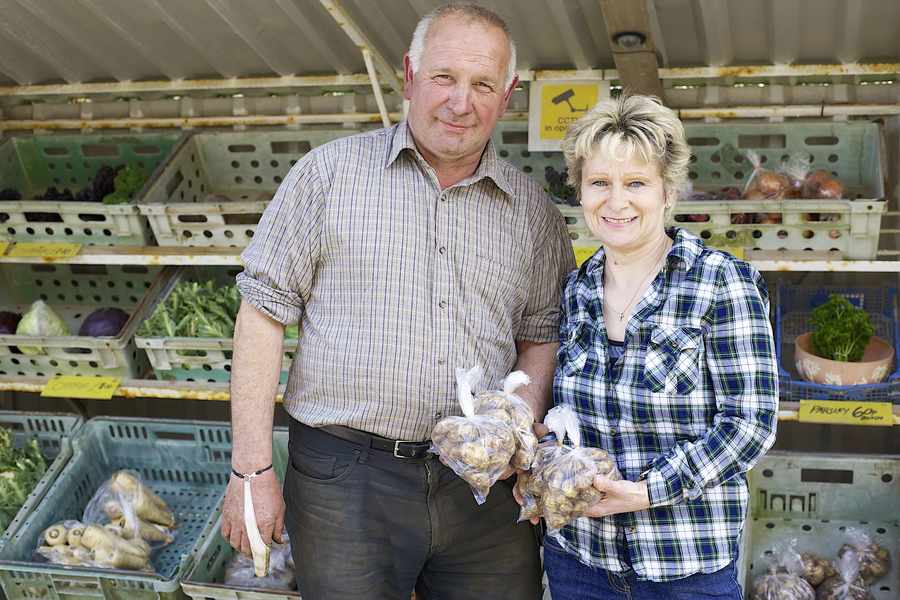- Farmers warned that they could face cuts to their grants
- States have to find ways of solving predicted 2019 deficit of £125m
- Deputy Steve Luce has met with farmers to discuss options
- Should farmers’ grants be protected? Take our poll below
CUTS could be made to the grants that farmers receive from the States, the Environment Minister has told a Scrutiny Panel.

- Last month, the JEP launched its Keep Jersey Farming campaign to back the industry.
- Our campaign is not just about buying local; it is about reconnecting the public with a way of life that has defined and influenced local culture and the environment for centuries.
- It will profile farmers, highlight the issues that affect the industry and promote seasonality and provenance.
- Farmers are the custodians of the countryside, which is under threat from competing land uses and over-development.
- They need your support to survive.
Deputy Steve Luce said on Thursday that he has met Island farmers to address ways in which to minimise the impact of potential cuts to the grants they receive from the government.
The warning comes after the States announced last month that they were facing a £125 million deficit by 2019.
Deputy Luce told the Environment, Housing and Technical Services Panel yesterday that the latest draft of the Rural Economy Strategy – which sets agricultural policy – had a lower level of grant aid than the current policy. He added that he was unable to provide specific details, as the draft strategy was still to be finalised.
However, he said that with smaller grants from both his department and Economic Development almost a certainty, he has taken steps to minimise the impact on the industry.
Deputy Luce said: ‘The Rural Economy Strategy will not have the levels of grant aid that it had previously, and the challenge for officers is to find a new strategy that still allows us to keep the countryside viable without the same resources.
‘I am in discussions with our agricultural industries to see how I might minimise the effect of reduction to grants, but it’s going to be tough and we will have to find ways of working with them.
‘We have to identify with the growing and dairy industries how we minimise the impact of any potential grant cut.’
In addition, the Deputy said that the single area payment, which is given to farmers on an annual basis for every vergée they tend, could be reduced or removed by Economic Development Minister Lyndon Farnham.
‘We’ve all had to find some savings, and in my department one of the ways we have done that is by looking at ways in which we might cut grants and budgets to farmers.
‘I understand that the Economic Development Minister is in a difficult position, and he is looking at how he prioritises the challenges around financial management.’

Earlier in the hearing, Deputy Luce told the panel that as part of the cuts, his department had introduced an employment freeze and that the positions of retiring employees would not necessarily be filled by new workers.
He mentioned that with the upcoming retirement of States Veterinary Officer Linda Lowseck, there had been discussions about whether the position would be merged with Guernsey to set up a post of Channel Islands Veterinary Officer.
However, the minister said that he had ruled out the move because both officers were ‘extremely busy’ and had a major role to play in the prevention of diseases entering the islands by different animal species.
Deputy Luce also said that as a ‘drastic measure’, he might look at whether it is viable for the Island to continue to be part of some of the farming conventions that it is currently signed up to.

Genuine Jersey growers Didier and Christine Hellio talk about the much-loved Jersey Royal potatoes, which are available now.
Can you tell us a little of the history of the Royal?
It was in the 1880 that a local farmer, Hugh de la Haye, found two large potatoes. He cut them into pieces and gave them to his friends to plant. In the spring one plant produced an early crop with a flaky skin, and that was the birth of the Jersey Royal. It is also known as the Jersey Royal Fluke. Since then they have become the Island’s main export crop.
Describe the produce?
Potatoes are vegetables. There are about 5,000 varieties of potato worldwide but the Jersey Royal is unique with its paper-like skin. Whether you buy the smallest size known as mids or chats or the medium size known as ware, it is the skin that makes them unique and special.
What do they taste like?
The taste is nutty and sweet.
What dishes/flavours/ingredients go well with them?
It is a fabulous salad potato, but goes well with any dish that you may be serving, as they are always a treat.
Where are they grown and how?
The first Royals are grown in the côtils (steep slopes) and then in the fields. They take 12 weeks to mature. In that time the earliest ones are covered with plastic to protect them from frost, and a fleece-type material can be added on top of the plastic if the temperature gets too low. The first ones are harvested in April.
What should you look out for when buying Royals?
When buying them they should look fresh, no browning of the skin. No greening of the skin and they should feel firm.
How should you store them?
Ideally they should be bought fresh for that day’s cooking. If you have to keep them for a day then keep them cool and in a dark place so they don’t go green. I have frozen the mids for a treat for Christmas lunch.
How should you prepare them?
The skin should be easily removed by just washing the potato in water. When washed they should be pearly white. Wash Royals in water, place into salted water and boil for 20 minutes.






